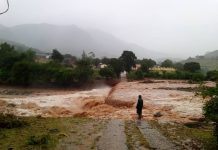Tripoli: AMNESTY International (AI) has expressed alarm over the escalation of violence in the outskirts of Tripoli, Libya where over a dozen people have been killed in deadly fighting for the control of the capital.
Atleast 25 people have been killed and 80 injured since the April 4 offensive by self-proclaimed Libyan National Army against militias aligned with Libya’s internationally recognized Government of National Accord.
“The escalation of violence on the outskirts of Tripoli is deeply alarming – there are fears that the civilian death toll will rise rapidly as the fighting intensifies and spreads into more densely populated parts of the city,” said Magdalena Mughrabi Amnesty International’s Deputy Director for the Middle East and North Africa.
Video footage posted on social media shows fighters using a Multiple Launch Rocket System (MLRS), which fires unguided and inaccurate rockets and should not be used in densely populated civilian areas because of the high risk that they will kill or injure civilians.
Flights from Mitiga airport have been suspended after an air strike by the Libyan National Army forces.
The International Organization for Migration has warned that some 2,800 people have been displaced by the fighting so far, and that in some areas civilians have been unable to leave due to intensity of the clashes.
Many are cut off from emergency services. Calls for a truce to evacuate wounded people and civilians in certain areas were ignored.
Some of the fighting is also in close proximity to immigration detention centres in Qasr Ben Gashir and Ain Zara, where around 1,300 refugees and migrants are being held.
“Refugees and migrants detained in Libya are already extremely vulnerable and suffer horrendous abuse at the hands of detaining authorities and smugglers. There are real concerns for their safety and their humanitarian situation if the clashes intensify, with reports of some being left locked up without food or water, in inhuman conditions,” said Magdalena Mughrabi.









